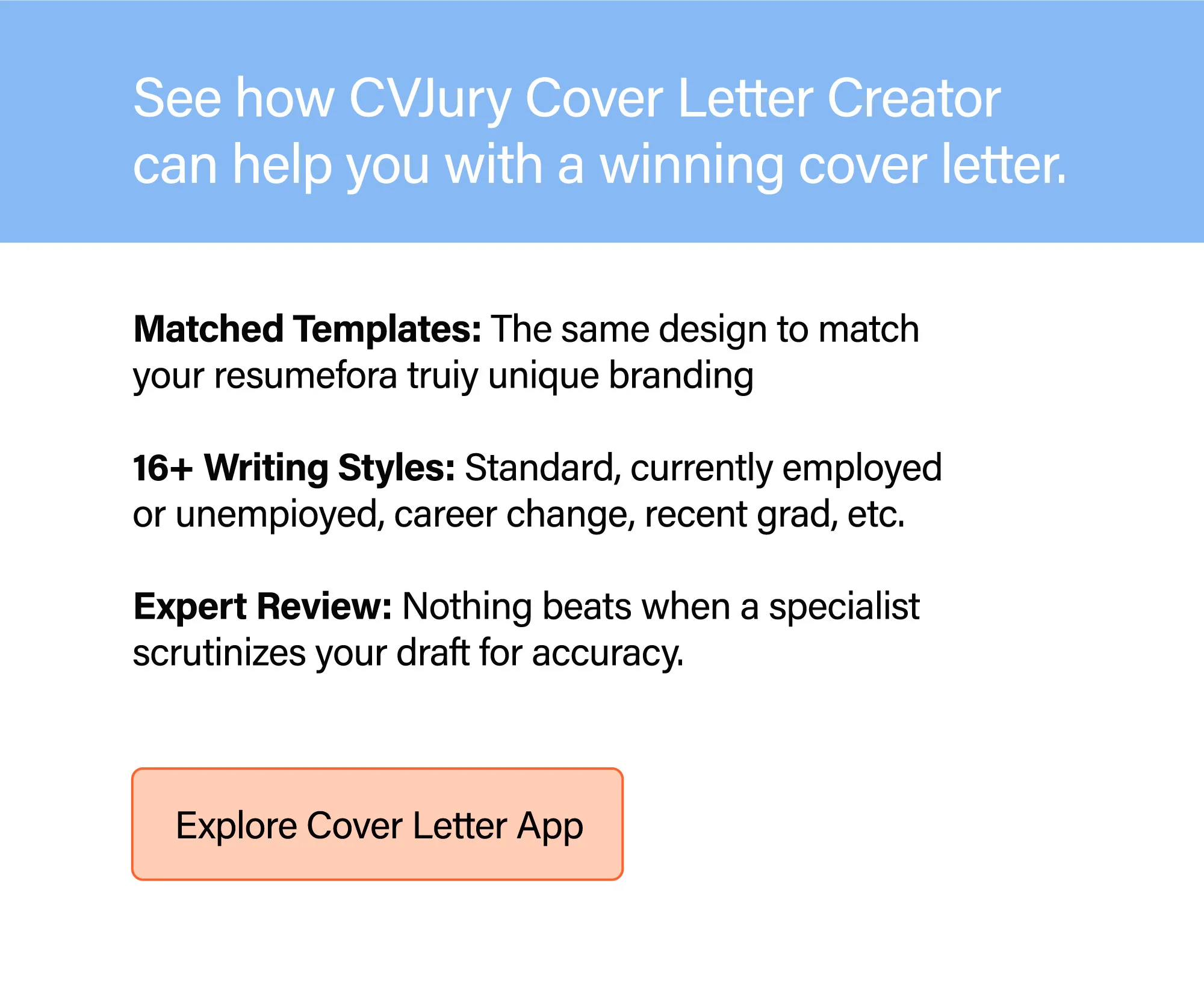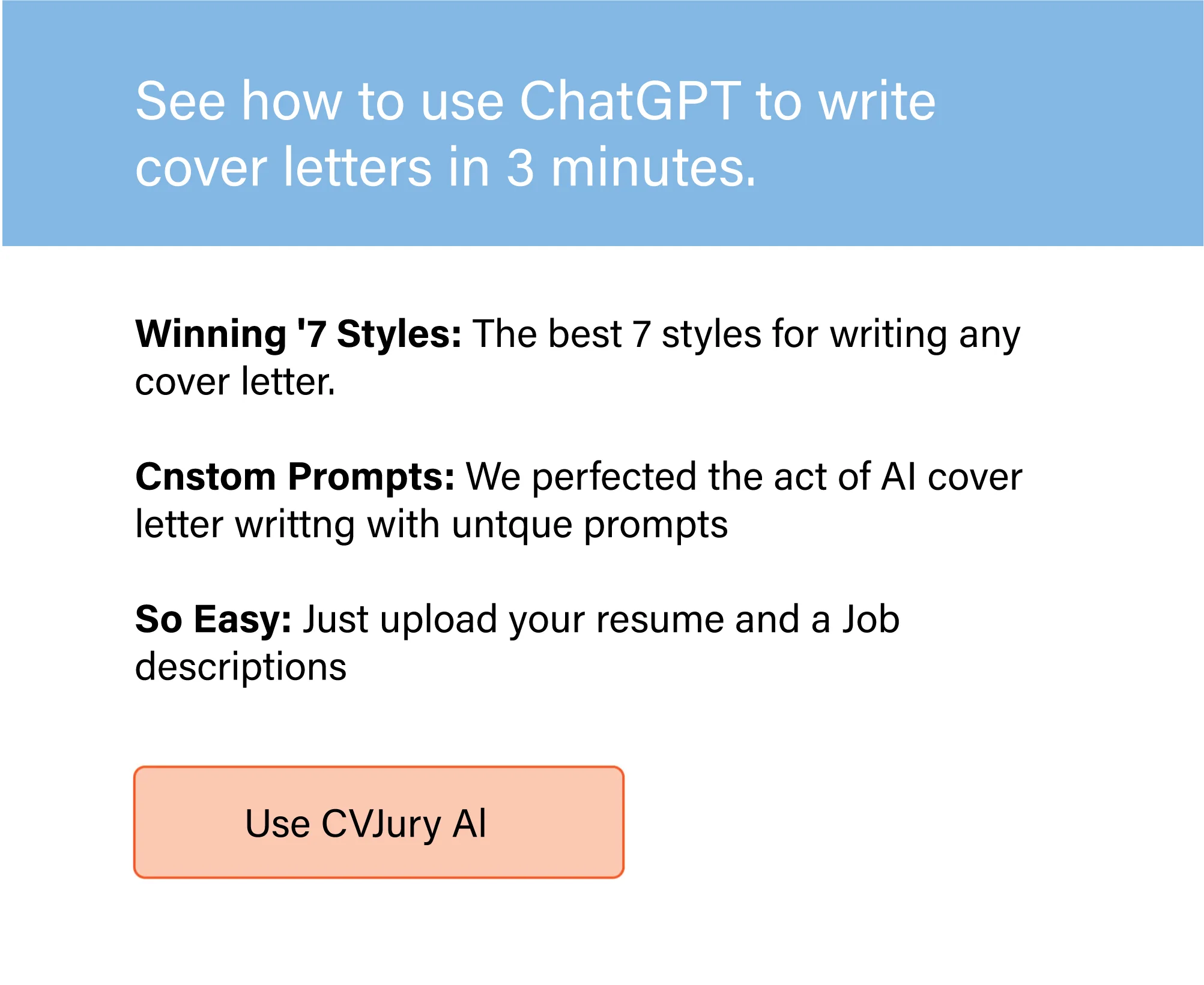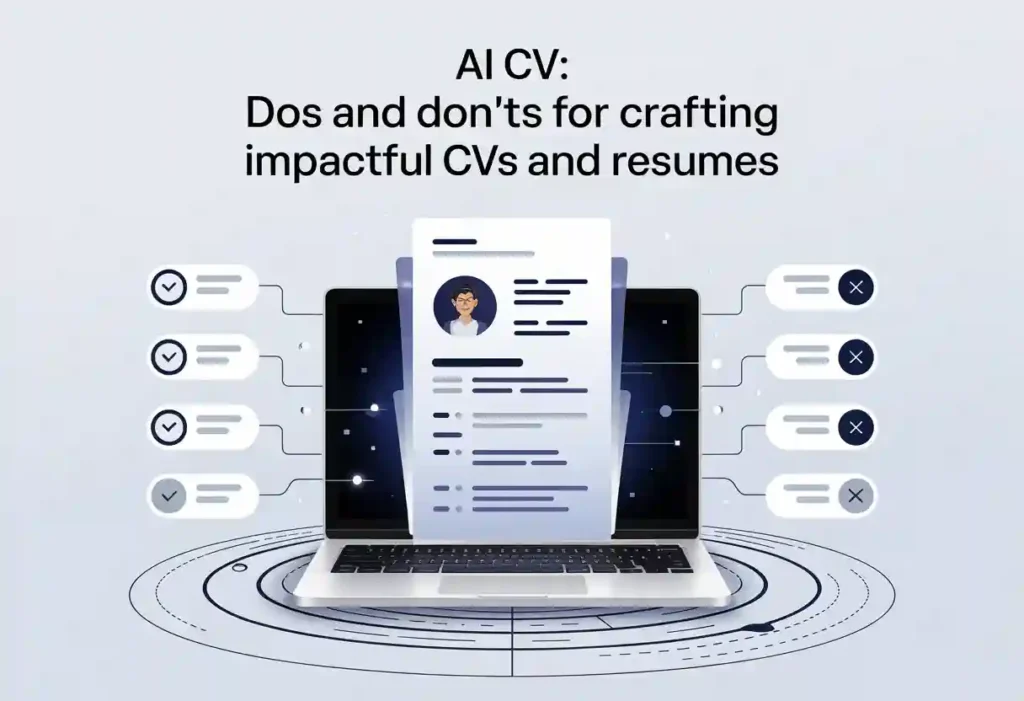The Cover Letter Paradox: Unseen But Unmistakably Important in Job Applications
One common misstep job applicants make is underestimating the importance of a cover letter. It may seem like an unnecessary hassle, but a convincing cover letter is essential to the application process in today’s highly competitive job market. It can significantly impact your chances of success.
The time and effort you put into crafting a flawless resume can be worthless if you fail to complement it with an impressive cover letter.
See it this way: while your resume gets you through the door, it’s the cover letter that genuinely opens it for you, allowing you to showcase your personality, skills, and competencies in finer detail.
Some may argue that cover letters do not matter that much. Fortune reports that 90% of hiring managers do not read cover letters. Yet, do not fall for this trap. Forbes contributor, Caroline Castrillon, reveals that 53% of employers are more inclined to hire candidates who include a cover letter with their application.
In other words, despite the high probability that your future employer may not read your cover letter, including it with your application increases your likelihood of being called for an interview. Suppose the company you are applying to is considering your application; a cover letter will give them more details about your background.
A survey by MSBResources indicates that about 48% of managers discard applications without a cover letter, and 49% discard applications that contain numerous mistakes.
A mistake-free cover letter is critical in your job search journey. Not only does it serve as a powerful tool to capture the hiring manager’s attention, but it also distinguishes you from other candidates.
Your cover letter should skillfully showcase your personality, potential, and past achievements, highlighting your unique selling point. To achieve this, ensure that your letter provides the following key elements:
- Your contact information
- Salutation
- An introduction directed at the hiring manager
- The essential qualifications
- A closing that is strong enough to motivate the hiring company to act
- Your signature and full name
We examine each in more detail in this article, what to do and not do.

Common Cover Letter Mistakes
Crafting an excellent cover letter enhances your chances of landing your dream job. It is a demanding task that requires creativity and attention to detail.
In a bid to show how innovative you can be, making seemingly minor mistakes can jeopardize your chances of securing an interview. Thus, avoiding cover letter mistakes should be a priority.
This article explores 18 common cover letter mistakes and provides valuable insights on how to avoid them. Steering clear of these errors will help you create a compelling cover letter. A letter that captures the attention of hiring managers and makes them remember your name.
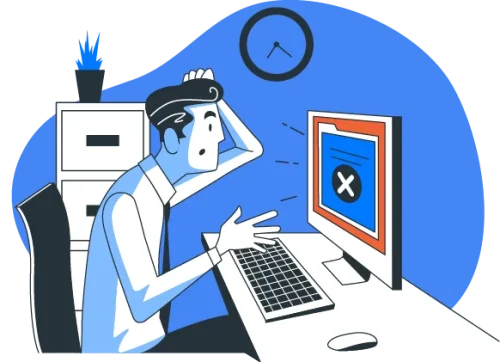
Failure To Follow Instructions of the Hiring Manager
Usually, hiring managers provide instructions on what they expect. They sometimes also add the modes of submission you should use, making it easy for them to get the necessary information quickly.
Failure to follow instructions can signal a lack of attention to detail, which may result in your application being trashed.
Read through the job posting thoroughly. Understand the job description and look for specific instructions. Make sure all your application procedures follow the instructions outlined.
Once, a reputable tech company posted a job listing for a Senior Software Engineer. In their instructions, they mentioned a specific line to be added to the cover letter – “I am a passionate coder.” This test tested candidates’ attention to detail and ability to follow instructions.
John, an accomplished software engineer from Austin, Texas, with a University of Texas master’s degree, decided to apply.
He had extensive experience and impressive qualifications, but due to his overconfidence, he neglected to read through the job advertisement thoroughly. Consequently, he missed the specific instructions for adding the sentence to the cover letter.
On the other hand, Janet, a less experienced software engineer, paid close attention to the job posting and included the requested line in her cover letter.
Despite her fewer years of experience, Jane received a call for an interview, and John did not.
Moral of the story: No matter how qualified you may be, failure to follow instructions can lead to missed opportunities.

Applying The Wrong Format
The correct format makes it easier for hiring managers to review your cover letter. While your letter should be unique, avoid being too wordy or artistic. Make your cover letter concise and write it in paragraph form. Preferably a three-paragraph format. See an example.
This will make it easier for the prospective employer to skim through it and get the most crucial information.
Avoiding the excessive use of colors and graphics also ensures that what will occupy the letter is what you have written.
To avoid such mistakes, start with a cover letter template to help you remain in the correct format. You can then customize it to be unique.
A cover letter should not exceed one page with margins of about one inch. Add a space between the sections. Use a professional and simple font that makes the cover letter easy to read. Calibri, Arial, and Times New Roman are clear to read.
Explaining Why You Are Looking For A New Job
It serves you no good to explain why you are searching for a new job in your cover letter. This might be a history or contentious relationship with your previous employer(s). Highlighting this might raise some concerns.
When writing a cover letter, discuss your interest in the company. Discuss the role in question and the kind of asset you would be if they were to offer you the job.
Everything should be positive, NOTHING negative, and the focus should be on the future. Only talk about your past when necessary. For example, describe your strengths, skills, accomplishments, similar positions, and talents.
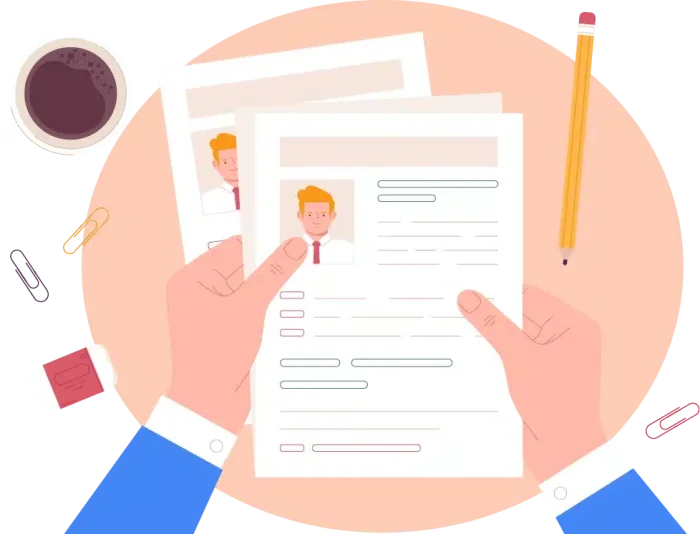
Applying For Every Job Using The Same Cover Letter
Sending a generic cover letter without tailoring it to the specific job requirements and company is a big mistake. The template can be the same to help you abide by the recommended format. Nevertheless, the content should vary and be original and relevant to the company.
Researching the organization and job description and mentioning the details in your letter shows your genuine interest in the position. Tailor your cover letters to the specific company and job position of your interest. Adjust your letter each time you plan to apply for a new post.
A well-crafted cover letter should first address the hiring manager by name and state the job position you are applying for. Outlining how your talents and skills are valuable assets for the company is an excellent way to go. Discuss how your values align with the company’s culture, mission, and vision.

Inadequate Research On The Job Position And The Company
This is one of the all too common mistakes job seekers make. To shape your cover letter for the specific position at the company, thorough research is required. You can get information from outside sources like
- Career boards
- News outlets
- Reviews of the company
Research gives insight into the company’s most important things and helps determine the type of information to include. By doing so, you can generate an effective cover letter that establishes a connection with the reader.
It gives the impression that you are invested in the company and positions you as the right person for the job.
Explaining Lack Of Experience Or Giving Irrelevant Ones
Going into excessive detail about your lack of relevant experience can be off-putting and may hinder your application progress.
It’s understandable to feel vulnerable when you have limited knowledge and skills required for the job. However, underselling yourself can create a negative impression.
The most effective cover letters emphasize your strengths and unique selling points. Companies are seeking to hire seasoned professionals with significant industry experience.
To make your cover letter compelling, punctuate each section with relevant examples. Discuss how your past experiences have equipped you to excel in the position.
Highlight your extensive knowledge and expertise related to the job requirements. Clearly outline your plan to apply the knowledge and skills you’ve gained to add value to the company.

Not Highlighting The Skills That Are Most Relevant And Vital To You
Cover letters are also a good way of explaining the absence of skills required in your resume. However, avoid digging up weaknesses.
Highlight the skills that comprise your greatest strengths and keep them relevant to the job position. Refrain from beating about the bush with irrelevant skills.
Related Reading: Cover Letter Mistakes
- Ten proven cover letter tips to win more interviews
- Free cover letter builder
- How to write a resume like a guru
Diverting Your Focus From Your Achievements To Your Duties
Your resume may list the responsibilities and duties in similar or previous positions. Nevertheless, let your cover letter expound on these duties. Choose the ones that are most impressive and relevant to the current position.
It should explain your professional experience and achievements and show how you went beyond what a role expected of you.

Discussing What You Expect Salary-Wise
Unless you are required to do so, the cover letter is not the place to discuss your unsolicited salary expectations. This common mistake can make you miss out on a single job opportunity.
This can create ideas in the mind of the person reading it. Discussing salary expectations early on gives the impression that you are all about the money. Employers prefer candidates who are not solely salary-driven.
Salary is an important consideration. However, save salary negotiations for later stages of the hiring process. When asked to include it, state a range you are comfortable with, but constantly research the salary range first.
Providing Inadequate Support For Your Claims
Outlining claims about your abilities, skills, and achievements is half the battle. You must support them with data, facts, and specific examples.
This proves that you are a sincere and valuable job candidate to the hiring manager. Using statistics, numbers, and data shows you are honest and committed to achieving results with top-quality services.
Failing To Use Keywords To Optimize Your Cover Letter
Thanks to technological advancements, hiring managers today can sift job applications using Applicant Tracking Systems (ATS). The ATS uses relevant phrases and keywords that the company chooses to review application documents to discover the most qualified candidates.
Writing a cover letter that captures the recruiter’s attention will require you to research keywords and connect them with statements describing your strengths, skills, and achievements. Learn how to optimize keywords here.

Repeating What You’ve Said Already In Your Resume
Write cover letters to offer support and enhance the information your resume holds. Your letter should provide more information that is not available in your resume. It should complement your resume, not duplicate it.
Nonetheless, avoid creating contradictions. The information in these two documents should be complementary and different.
Focus on providing additional context with concrete examples. Highlight relevant skills and selling points, and explain your motivation for applying to the specific role.
Adopting The Wrong Style Or Tone
Be original and formal while maintaining professionalism. This is the best way to establish the tone and style of a perfect cover letter.
Remember that an overly formal tone might cause disinterest and bore the reader. Yet, that does not mean you should sound very informal. A too-casual manner suggests that you do not take the job application seriously.
There should be a balance. It’s better to use a “Dear hiring manager” or “Dear Sir” type of cover letter greeting than “Hi Chris.”
Maintain professionalism by avoiding unnecessary jargon, slang, and informal language. You achieve personification by addressing the hiring manager by name.
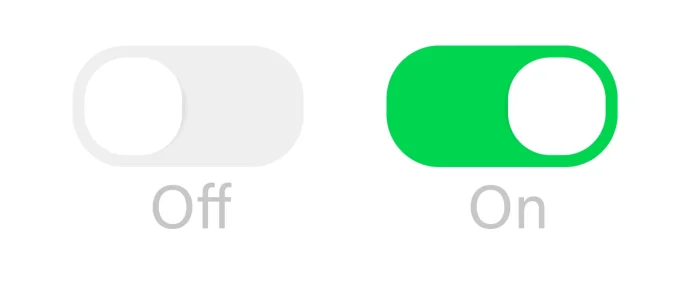
Not Including A Call To Action in Your Closing Remarks
This means not clearly stating what action you want the employer to take at the end of your letter. By having a call to action, you guide the reader on the next steps, such as scheduling an interview or contacting you for further discussion.
This requires that your closing include a request or motivation for action from the hiring manager. Including a call to action shows initiative.
Failing To Proofread Your Cover Letters Before Submission
A cover letter with typos and errors is a sure way to get your application in the bin. In an attempt to express yourself, you might overlook fine details. Such mistakes include:
- Spelling or grammatical mistakes
- Missing details
- Addressing the wrong company
- Inaccurate information
- Improper punctuation
Not proofreading can leave you vulnerable while creating a wrong impression. So do yourself a huge favor and proofread. Thoroughly reviewing your letter will allow the unique content to stand out. It will make it error-free and show that you are detail-oriented.
Have a friend review it to ensure no information is missing. You can never go wrong with a second pair of eyes. Free editing software like Grammarly or spell check will save you from avoidable errors.

Appearing To Be Too Trite
As much as possible, try not to sound too cliché. Trite phrases like “I believe I am the best choice for the position” or “I would love to apply for a job position at…” are not attractive. Some recruiters may even cringe when they see them. Comments like “great communicator” and “team player” appear over-flogged.
Instead, be more creative and personalize your claims. Offer a brief story of how well you work as a team and specify by giving examples. You can back up your skills with your professional experiences to prove them.
Being The Hiring Company’s Super Fan
Some applicants overly display devotion to the company. They spend the limited space of their letter talking about their love for the company. This can be repelling rather than attractive and is not a good first impression.
The main aim of your letter is to inform them of how you will serve them. Flattery can work some miracles, but going overboard raises eyebrows. Writing a love letter to the firm is unnecessary for the recruiter to like you.
If you hold the firm’s mission, culture, or values to a high standard, you can write about how it inspires you. Don’t write random compliments about the firm, hoping the recruiters will favor you. Such hardly ever works with intuitive recruiters who can see through the façade.
Your letter serves as a sales pitch to showcase your achievements. It is not a flattering letter to your favorite idol.
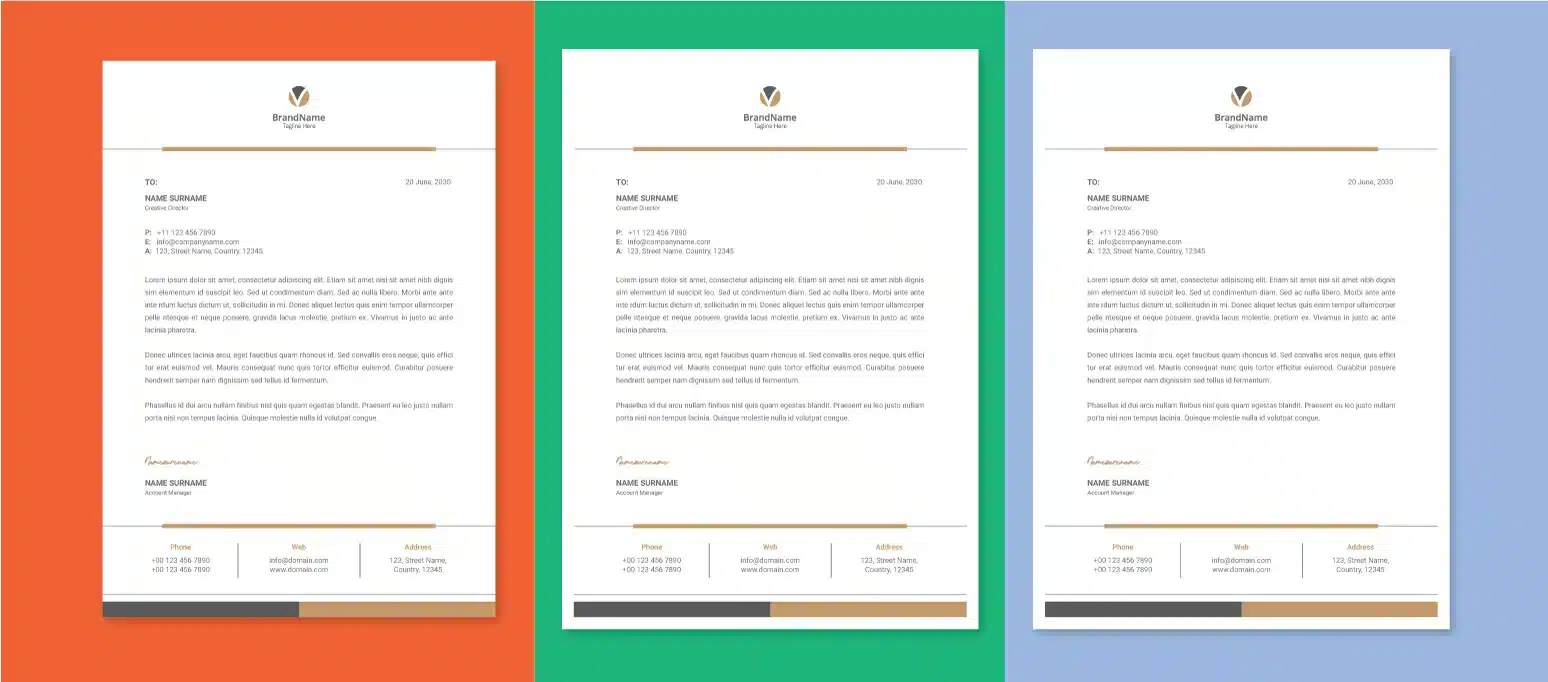
Copying And Pasting A Cover Letter Template
You surely cannot stand out by doing what almost every applicant does—copying generic cover letter templates. This mistake is so common that most employers can now spot copy-pasted cover letters immediately.
A cover letter template is meant to help you develop a standard structure for your letter. It is useful when you need help deciding what format to adopt.
Yet, many job applicants do not consider the template a guide. They choose to copy and paste the sample and make very few changes.
Copy-pasting a general cover letter from an online sample shows that you submitted it out of necessity rather than genuine interest in the vacancy. The best cover letters show effort, which makes the difference.
Customize when applying for many jobs, and you lack the time to write twenty cover letters. The first paragraph should mention the position, the person being addressed, and the company name.
You can use cover letter template samples as sources of inspiration and ideas. Also, ensure that a cover letter sample suits the role you want to apply for and is unique. This will present you as detail-oriented and create an excellent first impression.
Let’s consider Laura, a fresh graduate looking for her first job. She stumbled upon a job posting that seemed perfect for her. Excitedly, she Googled “best cover letter templates” and picked one that seemed professional and well-written. She replaced the name and contact information, then quickly sent it out.
Conversely, a fellow graduate, Mike, drafted his cover letter from scratch. It took him a few hours to write and proofread it, but he ensured it was original and tailored to the job.
In the end, despite having similar qualifications, Mike got a call for an interview. Laura, however, was left wondering where she went wrong. The hiring team had seen the same template used by hundreds of other applicants and was impressed by Mike’s effort and originality.
Suppose there’s one thing to be learned from this story. In that case, while using a template is acceptable, simply copying and pasting it without substantial modifications demonstrates a lack of effort. And it may result in your job application being overlooked.

Discover Job Opportunities: Inspire Potential Employers with an Impressive Cover Letter
Writing a cover letter plays a pivotal role in securing your dream job. By learning from the common mistakes discussed in this article, you can up your cover letter game and stand out from other applicants.
Remember, your cover letter is your opportunity to showcase your passion, skills, and unique qualifications. Embrace the power of personalization. Demonstrate enthusiasm and let your genuine interest in the role shine through.
With an impeccable cover letter, you have the potential to inspire and intrigue potential employers, thereby opening the gateway to a world of exciting possibilities.
A remarkably great cover letter shows that you believe in yourself, your abilities, and your potential. Every seasoned recruitment professional appreciates that, so go out there and make it happen.
Recommended: Cover Letter Mistakes to Avoid
- Ten proven cover letter tips to win more interviews
- How to write a good cover letter
- Cover letter storytelling tips
- Matching resume and cover letter templates

